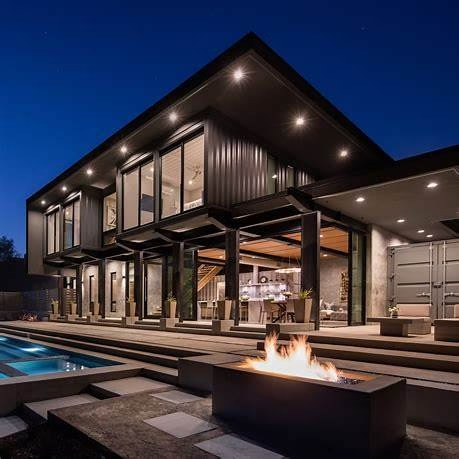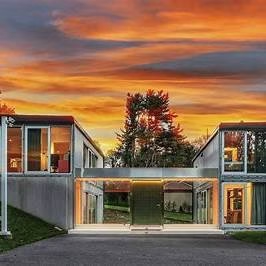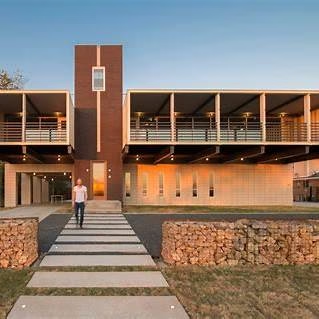


Shipping containers have evolved beyond their traditional role in freight transport to become versatile structures in various sectors. Their inherent strength, modularity, and cost-effectiveness have led to innovative applications across residential, commercial, and industrial domains.
Residential Uses
The trend of converting shipping containers into homes has gained significant momentum. These container homes offer an affordable and sustainable alternative to conventional housing. For instance, Amazon offers a two-story luxury container house priced at $27,990, featuring heavy-duty steel construction and designed to withstand harsh weather conditions. This model includes floor-to-ceiling windows, customizable floor plans, and a rooftop deck, providing a modern living experience.
In another example, a couple in Texas built their dream home using two 40-foot shipping containers for approximately £48,000. Their 640-square-foot residence includes one bedroom and a bathroom, showcasing how container homes can be both cost-effective and comfortable.
Commercial Applications
Businesses are increasingly adopting shipping containers for various commercial purposes due to their flexibility and mobility. They serve as pop-up shops, temporary retail spaces, and even permanent locations for small enterprises. The ease of relocation makes them ideal for businesses requiring mobility or operating in multiple locations.
Additionally, shipping containers are transformed into mobile offices and workspaces, providing unique alternatives to traditional office settings. These container offices offer privacy, functionality, and flexibility, making them appealing to startups and small businesses.
Industrial and Agricultural Uses
In the industrial sector, shipping containers are utilized for storage solutions, housing raw materials, and finished goods. Their durability and security make them suitable for protecting valuable inventory.
Agriculturally, containers are repurposed as indoor farms and greenhouses, enabling controlled environments for growing various crops. This application supports urban farming initiatives and addresses food security challenges by facilitating year-round cultivation.
Innovative Developments
The adaptability of shipping containers continues to inspire creative projects. For example, a unique container home in Port Neill, Australia, was sold within 30 minutes for above its $360,000 guide price. This two-story home features a modern kitchen, comfortable lounge, and three balconies with stunning ocean views, highlighting the potential for luxury living spaces crafted from shipping containers.
In summary, the multifaceted applications of shipping containers demonstrate their potential to revolutionize traditional structures across various industries. As innovation progresses, these versatile units are poised to play an increasingly prominent role in addressing contemporary housing, commercial, and industrial challenges.






0 Comments